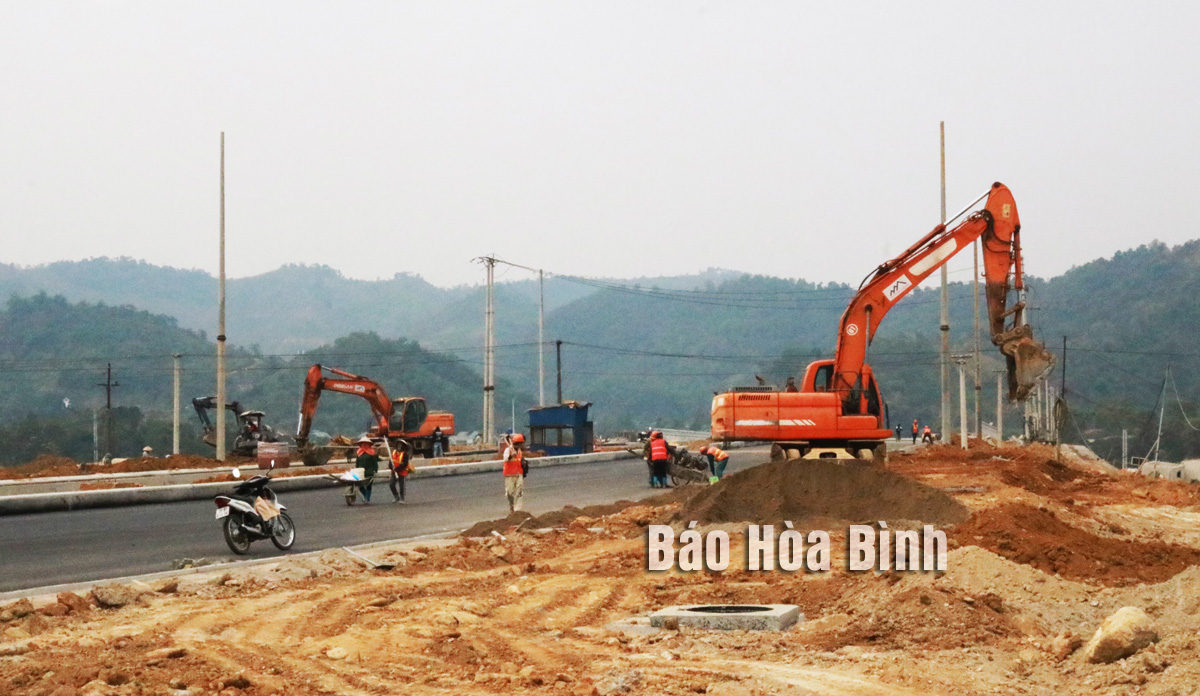



Funded through public investment, the Yen Quang Industrial Park infrastructure project in Hoa Binh city has shown good progress, proving effective in investment attraction.
In the final year of implementing its 17th provincial Party Congress's resolution (2020–2025), Hoa Binh has added 10 non-budget projects to its list of 24 key projects, with a total investment exceeding 102 trillion VND (3.9 billion USD).
The province’s leadership, including the provincial Party Secretary, have directly overseen progress, emphasising the urgent need to speed up the key projects, including one public-private partnership (PPP) project and five funded by the state budget.
Despite high-level determination, site clearance has emerged as a major bottleneck, affecting both public investment disbursement and the province’s broader investment environment and competitiveness.
Issues related to land and construction management, project coordination between investors and grassroots authorities, and limited local capacity have also contributed to delays.
Acknowledging these shortcomings, Bui Ngoc Tam, Director of the province's management board for transport projects, proposed that to improve public investment effectiveness in the coming time, it is necessary to promote power decentralisation during the implementation of the two-tier local government model to further empower grassroots administrations and improve their capacity. As new challenges will emerge during the implementation of inter-commune projects when many communes are set to be merged, mechanisms should be overhauled and coordination among investors, localities and related units bettered, with those at the grassroots level working more decisively.
Over the last five years, Hoa Binh has exerted efforts to tackle problems and gain experiences from reality. To shorten the project appraisal duration, the chairperson of the provincial People's Committee issued Decision1264/QD-UBND on June 27, 2022 to establish an investment appraisal council, thus creating a mechanism for close coordination between the appraisal body and investors. The province has also moved to improve the quality of public investment management rules, helping ensure smooth implementation of each project to turn public investment into a true driver for sustainable growth.
Determined to make breakthroughs in implementing the 2026–2030 medium-term public investment plan, the province is focusing on simplifying investment procedures, cutting intermediary steps, stepping up digital transformation in project management to increase transparency and supervision efficiency, and upgrading staff capacity, particularly at the grassroots level. These reforms are especially important as Hoa Binh is about to be merged with Phu Tho and Vinh Phuc provinces, forming a new Phu Tho province with a greater stature and development space.
With flexible governance and a renewed reform mindset, Hoa Binh is promoting public investment to open up a new avenue for development and strategic breakthroughs in the new era of the nation's rise.